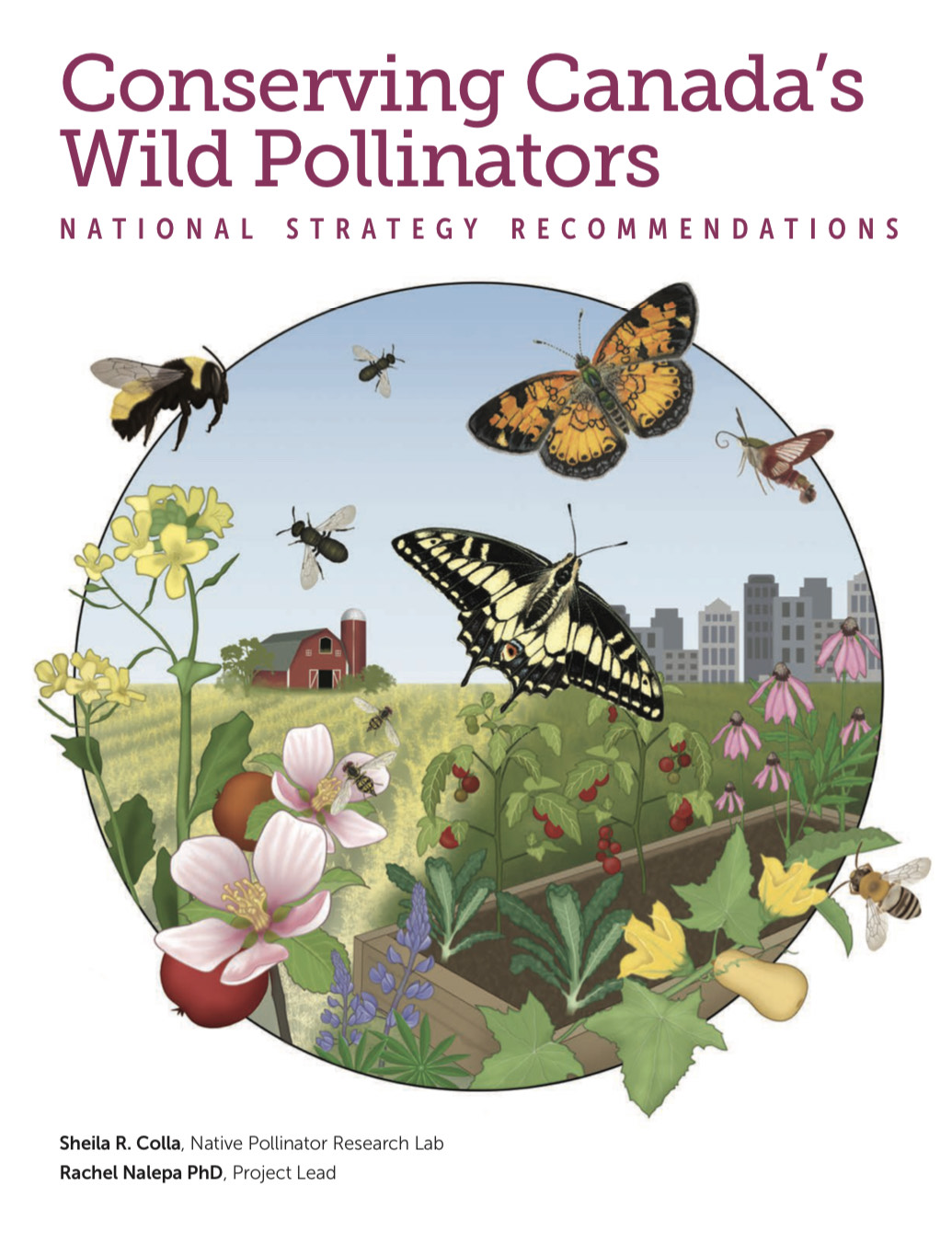national strategy recommendations
Conserving Canada's Wild PollinatorsDue to human activity, Canadians are losing native plants and animals at an alarming rate. Species under threat include many of the wild pollinators that are integral to Canada’s natural ecosystems and national food security. The science is clear: there is no single factor causing the decline of Canada’s pollinators. Rather, it is the interaction of many factors that are contributing to pollinators’ current state of stress, and these factors have different impacts in different regions and for different species. Researchers are working to further characterize these relationships, but in the meantime, there are many actions that we can take to maintain and create pollinator-friendly spaces in our communities that span cities, agricultural lands, protected areas and degraded lands. Pollinator decline is urgent and requires swift and sustained action in order to protect Canada’s agricultural sector and the health of the natural environment.

Watch the video above to hear Dr. Sheila Colla and Dr. Rachel Nalepa discuss the need for, and their recommendations for, a Canadian National Wild Pollinator Strategy.
To read the press release by York University about this strategy, please click here.
Conserving Canada’s Wild Pollinators: National Strategy Recommendations outlines a vision for a pollinator-friendly Canada. More specifically, this strategy provides a blueprint that will help wild pollinators to not only survive, but to thrive. The vision is supported by goals that will address the top threats to Canada’s wild pollinators including habitat loss, pesticides and disease, all in the context of ongoing climate change. Each goal is linked to objectives, clear action steps and research that fills knowledge gaps in support of the objectives.
Download a copy of Conserving Canada’s Wild Pollinators: National Strategy Recommendations →
Toward a Wild Pollinator Strategy for Canada: Expert Recommended Solutions and Policy Levers is the peer-reviewed research summary by Drs. Rachel Nalepa and Sheila R. Colla (Faculty of Environmental and Urban Change, York University) that informs Conserving Canada’s Wild pollinators.
How you can help make canada wild pollinator-friendly
Many countries around the world have national pollinator conservation strategies in place. It’s time for Canada to catch up. If you agree, it’s important to let representatives at every level of government know you support pollinator conservation efforts.
If you live in Canada, please write or call your town’s mayor, your member of provincial parliament (M.P.P.) or legislative assembly (M.L.A), and your member of federal parliament (M.P.) and let them know that you want a pollinator-friendly Canada, and that you want all levels of Canadian government to take collaborative leadership action with First Nations, Métis, and Inuit nations on developing and implementing a national strategy for the conservation of pollinators, including wild pollinators.
Also, tell the Prime Minister you agree Canada should have a national pollinator conservation strategy.
Write: PM@PM.GC.ca
Tweet: @CanadianPM
more ways to help protect wild pollinators
- Create habitat! You can find more information about how to create bumble bee habitat at www.xerces.org/BumbleBees
- Help conservation scientists monitor wild bumble bee populations by participating in community science project, Bumble Bee Watch
- Support local, organic agriculture. Many pesticides are harmful to bumble bee colonies and many vegetable and fruit plants provide great food sources for bees
- Spread the word! Some people are afraid of bumble bees (most of whom rarely if ever sting) and other insects. Let your friends and family know how important they are
- Reduce your use of fossil fuels
FOR MEDIA INQUIRIES: Sandra McLean (she/her)
Senior Media Relations Officer, Media Relations and External Communications
C 416-272-6317
T 416-736-2100 ext 22097
sandramc@yorku.ca
